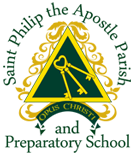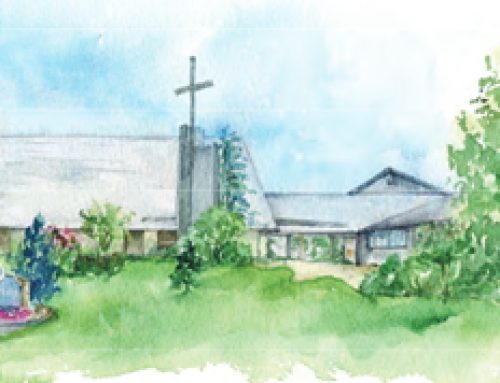FROM THE PASTOR’S DESK
My Dear Parishioners:
We are drawing close to celebrating the Solemnity of the Lord’s Nativity, Christmas Day, on December 25th. The Lord is very near and is coming quickly, as the Liturgy of the Church keeps reminding us. It is the recurring theme in the season of Advent.
The nearness of the Lord should be a comfort to all believers. The Redeemer of all people is coming, desiring that all of us partake of everlasting life. Christ our God came among us as a human being, toiling and suffering for us, sharing our existence to the full, showing us how to live and how to hand ourselves over in the service of God and neighbor.
The Lord calls us to give of ourselves, what Christ also called “losing oneself,” to truly find oneself, whereby we attain complete fulfillment, realized in Christ who dwells in our hearts.
The scripture readings assigned for the third Sunday of Advent, when the vestment color changes, remind us of the Lord’s nearness and how pleasant and rich the mystery of God’s coming really is. The color assigned by the Church for today’s liturgy is rose, recalling the fragrant offering we make to God and calling to mind what many consider to be the most fragrant of flowers, the rose.
Madison, New Jersey is called “the rose city,” for the millions of cut roses sent by train to New York City throughout the year. So many people love the smell and look of roses. Our Church in her liturgy wishes us to know that our God can be compared to the powerful beauty and fragrance of the rose. Of course, it is only a comparison since God transcends the beauty and goodness of all things.
In the first lesson for this Advent Sunday, the prophet Zephaniah tells the people to rejoice in the fact of God’s mighty deeds: the removing of enemies and all misfortune, with nothing to fear. Why? Because the Lord the Savior is in the midst of the people, renewing them in God’s love. In the actual context of the scripture text, originally composed in Hebrew, these are words about returning to Jerusalem after prolonged exile and imprisonment in Babylon. That is precisely what everyone needs, namely, a return from estrangement and belonging to something greater than self, to the God who saves us.
The people of Israel longed to be able to return to their homeland. Likewise, we who were created to share in God’s eternal banquet in heaven, must now walk in faith, hope, and love through this life, drawing closer to God with every breath we take. That can happen if we allow ourselves to be transformed by our infinite and all-loving God.
We are sinful creatures, yet called to greatness and holiness, something that is possible by the active working of God in our souls, what is called supernatural grace. It cannot be weighed or measured but is more real than anything we have ever had or experienced.
The Gospel passage this Sunday focuses on God’s coming in our midst, without doubt or delay. God is Love and where love in found, there is God. As such, the power of God’s light cannot be defeated by the darkness of sin and error.
Christ will be with us always, as he promised, with a call to extend Christ-like love to all we meet, the poor and rich, the infirm and healthy, the young and old. Christ came to change everything and everyone, to be our light in the darkness and our strength in all our weakness and doubt.
Like the prophet Zephaniah, Saint Paul also speaks this Sunday about rejoicing in the Lord and dismissing all anxiety from our lives. It is a fundamental theme for all who follow Christ, but something we always need more of.
Along with waiting for the Lord and rejoicing in God’s goodness, every spiritual journey requires a strong dose of patience as well. That is manifested in consistency in our work, keeping the commandments, sticking to our obligations, which leads us to happiness and holiness. This takes much time and effort, practice, and the development of good habits, seeking virtue rather than vice. We may fail regularly, but are called to get up again, fortified by God’s grace and the Sacraments of the Church and those around us who encourage us in doing good.
It is often when we are most ready to admit our limitations, our weaknesses, that we are able to receive the help we need, and most especially the outstretched hand of God. We must do our part as well, disposing ourselves to receive God’s help, with “a broken, humbled heart,” as the psalmist expressed it in Psalm 50 (51). The Sacrament of Penance or Reconciliation is a powerful help in our ongoing conversion of heart.
In this Advent season we ask with expectant hope for help from God, who has redeemed us in Jesus Christ. In serenity and patience, we are invited to hear God’s voice calling out to us each day, to lose ourselves that we may be found doing God’s work, that is, loving all and serving them without counting the cost.
May the Eucharist, Holy Mass, where we commemorate the supreme sacrifice of God’s love for us, in the suffering, death and resurrection of Jesus Christ, help us know more profoundly God’s great gifts. May we be more ready and willing to hand over our lives for love of God and others.
We carry on in the season of Advent with gentle expectation of truly meeting the Lord who has loved us into being and invites us to taste immortality.
Peace,
Fr. Monteleone
To read complete bulletin click here



